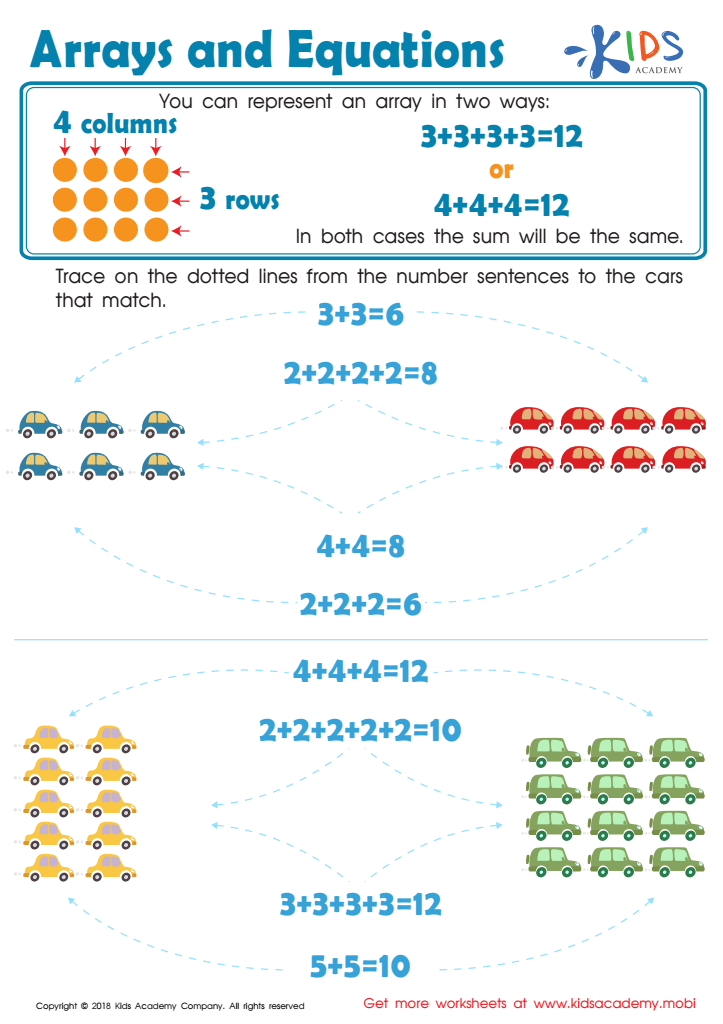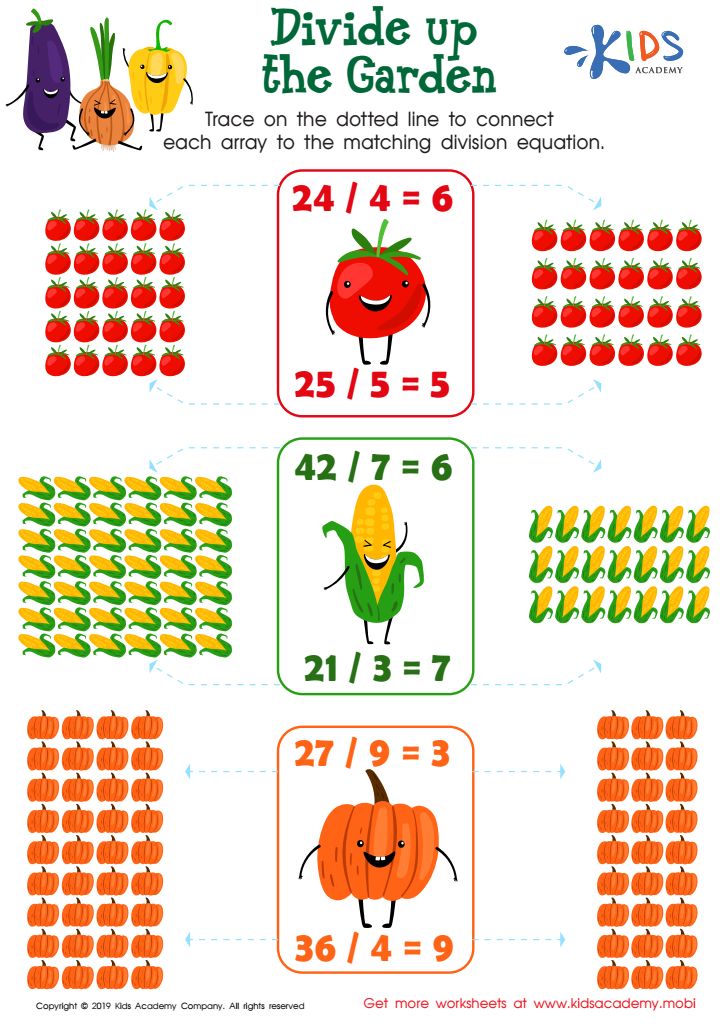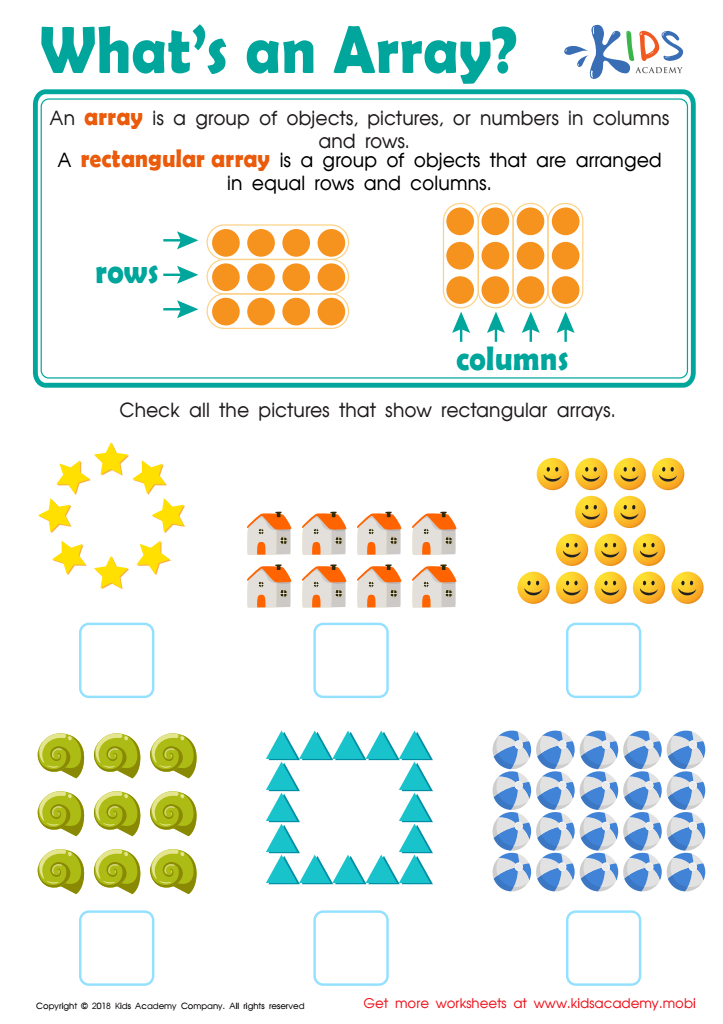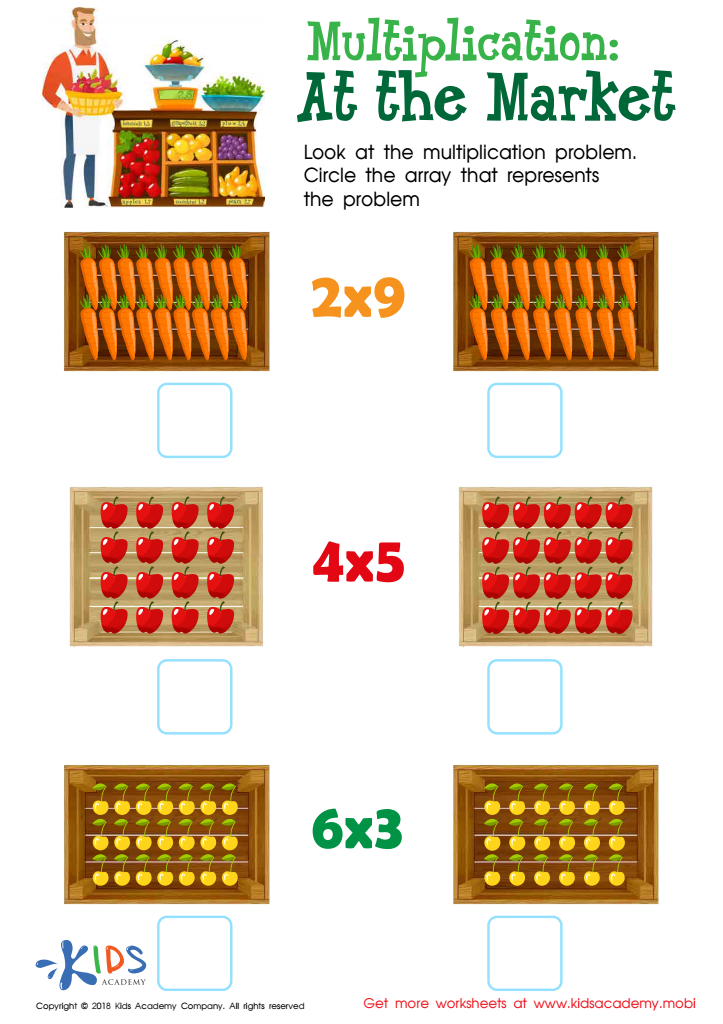Problem-Solving Skills Arrays Worksheets
4 filtered results
-
From - To
Enhance your students' problem-solving abilities with our engaging Arrays Worksheets! Designed for early learners, these worksheets focus on the fundamental concept of arrays, helping children visualize and solve mathematical problems effectively. With various activities that encourage critical thinking and logical reasoning, students will learn to identify patterns, count objects, and perform basic operations. Our worksheets are suitable for both classroom and home use, providing ample practice and reinforcing key skills. Foster a love for math and build a strong foundation with these enjoyable, interactive resources that make learning fun and effective. Download our Problem-Solving Skills Arrays Worksheets today!


Arrays and Equations Worksheet


Divide up the Garden Worksheet


What's an Array? Worksheet


At the Market Worksheet
Problem-solving skills are essential for children's development, and understanding them can significantly enhance their learning experiences. Teachers and parents should care about Problem-Solving Skills Arrays because they provide a structured approach to identifying and addressing challenges, fostering critical thinking and resilience in young learners.
Engaging with these arrays helps students break complex problems into manageable parts, encouraging logical reasoning and analytical thinking. This not only applies to academic tasks but also cultivates life skills that are crucial as children grow—like decision-making and effective communication. In a world that increasingly values creativity and adaptability, nurturing these skills prepares children for future challenges, both in and outside of school.
Moreover, when teachers and parents work together to support problem-solving, they create a unified front that reinforces lessons learned at school and home. This partnership enhances a child's ability to transfer skills across environments, making learning more relevant and impactful.
Lastly, by integrating Problem-Solving Skills Arrays into daily interactions, adults can model and reinforce positive behaviors. They encourage children to approach difficulties with a growth mindset, viewing setbacks as opportunities for learning rather than barriers. This approach ultimately equips children with the tools they need for long-term success.
 Assign to My Students
Assign to My Students


















